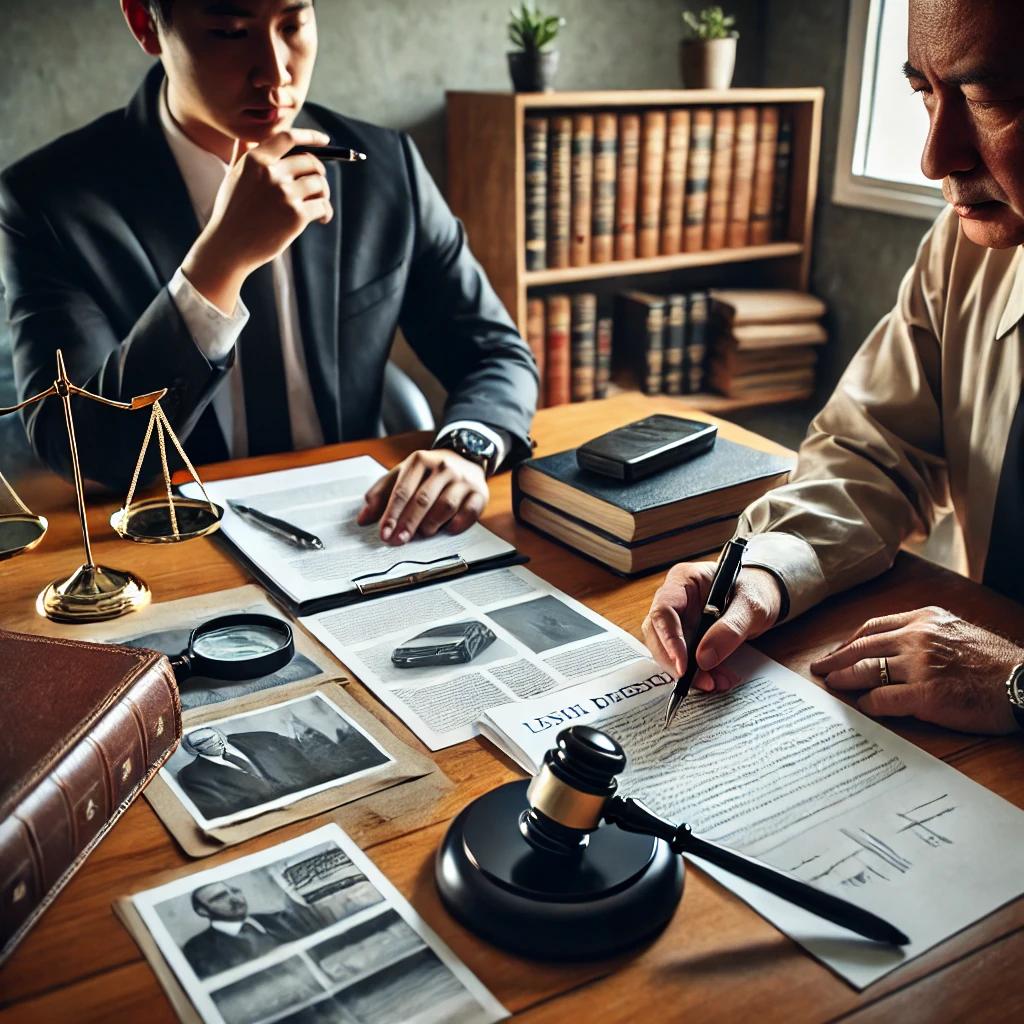Civil – Plaintiff or Defendant
Private investigators (PIs) can play a significant role in civil lawsuits, providing valuable assistance to either the plaintiff or the defendant.



1. Gathering Evidence
-
PIs can collect evidence that supports the claims or defenses in a civil lawsuit:
- Documenting incidents: Gathering photographic, video, or physical evidence related to the case.
- Witness identification and interviews: Locating and interviewing witnesses who can provide relevant information or testimony.
2. Child Custody Cases
- Situation: A parent suspects the other parent of neglect, abuse, or inappropriate behavior that could harm the child.
- PI’s Role: The PI observes and documents the behavior of the other parent, including how they care for the child, living conditions, and any violations of custody agreements or court orders.
3. Surveillance
-
PIs can conduct surveillance to monitor the behavior and activities of involved parties:
- Personal injury claims: Observing a plaintiff to determine if their claimed injuries are consistent with their activities.
- Infidelity or misconduct: Monitoring the actions of a spouse or business partner accused of infidelity or misconduct.
4. Asset Searches
-
PIs can locate and document assets that might be relevant to the case:
- Hidden assets: Finding assets that a party may be attempting to hide to avoid financial liability.
- Asset valuation: Determining the value of assets for settlements or judgments.
5. Document Retrieval and Analysis
PIs can obtain and analyze important documents:
- Legal and financial records: Collecting records such as court documents, financial statements, and transaction histories.
- Contract verification: Reviewing and verifying the authenticity and terms of contracts or agreements.
6. Fraud Investigations
-
PIs can investigate potential fraud or deceit:
- Insurance fraud: Uncovering fraudulent insurance claims or exaggerations.
- Business fraud: Investigating allegations of embezzlement, breach of contract, or other fraudulent activities.
7. Locating Individuals
-
PIs can find individuals who are important to the case:
- Defendants: Locating defendants who are avoiding service of process.
- Witnesses: Finding key witnesses whose testimony is crucial.
1. Personal Injury Lawsuit
- Situation: A plaintiff claims severe injuries from an accident, seeking substantial compensation.
- PI’s Role: The PI conducts surveillance to observe the plaintiff’s daily activities, gathering evidence that might contradict the injury claims. They may also interview witnesses who were present at the scene.
2. Business Dispute
- Situation: Two business partners are involved in a dispute over the misuse of company funds.
- PI’s Role: The PI conducts a forensic accounting investigation to trace the flow of funds, uncovers hidden assets, and verifies the authenticity of financial documents.
3. Divorce and Custody Case
- Situation: A spouse suspects the other of hiding assets or engaging in behavior detrimental to child custody arrangements.
- PI’s Role: The PI locates hidden assets, conducts background checks on new partners, and documents any behavior that might affect custody decisions.
4. Intellectual Property Theft
- Situation: A company suspects a former employee of stealing trade secrets and sharing them with a competitor.
- PI’s Role: The PI investigates the former employee’s activities, gathers evidence of communication with the competitor, and documents the transfer of proprietary information.
Private investigators can provide crucial support in civil lawsuits by gathering evidence, conducting background checks, performing surveillance, locating assets and individuals, and investigating fraud. Whether working for the plaintiff or the defendant, PIs help build a stronger case by uncovering and documenting information that might otherwise remain hidden, ensuring a thorough and fair legal process.
Contact us today at info@dfwinvestigators.com for a discreet consultation.
